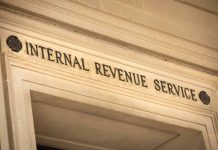
Millions of Americans deal with rent. In fact, 44.1 million households rent their home. Your rent is a bill you are responsible for every month. Other bills that people need to deal with are their credit cards, car loans, and more. However, because rent isn’t a type of credit account per say, people may not know how rent payments work with their credit score. It can be even more confusing to consider that evictions can impact your score as well. Hopefully we can clear up any confusion that comes along with your rent payments, your credit score, and more.
What is a Credit Score
Before learning about how rent payments can impact your score, you will want to make sure you have a clear understanding as to what your credit score is. Your credit score is usually a number that’s between 300 and 850. There are credit bureaus (also known as credit reporting agencies) that use information on your credit report to calculate your score. There are three major credit bureaus which are Equifax, Experian, and Transunion. Your credit report contains information about your credit file like your credit balances, payments made, and more.
When calculating your credit score, credit reporting agencies will also use scoring models. Scoring models determine how items on your credit report will impact your score. There are two main scoring models which are the VantageScore model and the FICO model. However, these two models are not used equally. Instead, the FICO model is much more common. That’s because it is used by 90% of top lenders!
What Can Impact Your Score?
Since the FICO model is the more common option between the two scoring models, that is what we will be using as reference for the factors that can impact your score! There are five main factors that can have an effect on your credit score which includes:
- Payment History
- Credit Utilization
- Age of Credit History
- Credit Variety
- Hard Pulls
Payment History
Your payment history is the most important when it comes to factors that can impact your score. That’s because it accounts for 35% of your score, which shouldn’t come as a surprise. Since lenders use your credit score to better understand how you are as a borrower, they can easily see how you repay your debts with your payment history. This would include information like your on-time payments, late payments, etc.
Credit Utilization
Your credit utilization is also known as your credit usage. This factor is a ratio that compares how much credit you are currently using to your total credit limit. For example, if you have a total credit limit of $3,000 but are currently using $1,500 then your credit utilization ratio would be 50%. This factor accounts for 30% of your credit score.
Age of Credit History
In the middle of this list is the age of your credit history. This factor accounts for 15% of your credit score. It would include information like the age of your newest credit account, the age of your oldest credit account, the average age of your credit accounts, etc.
Credit Variety
Credit isn’t made up of one type of account. Instead, there are different accounts that make up your credit score. There are installment loans and revolving credit. The variety of credit accounts you have impacts 10% of your score. While it isn’t the most important item on this list, it is still something to be mindful of!
Hard Pulls
Hard pulls are another name for hard inquiries. There are two types of inquiries when it comes to your credit score. There are soft inquiries and hard inquiries. Hard inquiries are what lenders need in order to get a more in-depth look at your credit file. This can help them review your credit to determine your eligibility. Hard inquiries require written authorization from the consumer in order to give this access. On the other hand, soft inquiries do not have an impact on your score!
What Kind of Score Do You Have?
The ranking of your score varies on the scoring model as well. It’s also important to keep in mind that there are different versions of the scoring models. For example, the most common FICO model has at least 16 different versions. This can result in different ranges of scores. Typically you can expect the FICO model to categorize scores like this:
- Poor (credit scores between 300 and 579)
- Fair (credit scores between 580 and 669)
- Good (credit scores between 670 and 739)
- Very Good (credit scores between 740 and 799)
- Exceptional (credit scores between 800 and 850)
Those are the ranges for the FICO model. On the other hand, the VantageScore model is different. They have different categories and rankings of scores like:
- Very Poor ( scores that are between 300 and 499)
- Poor ( scores that are between 500 and 600)
- Fair ( scores that are between 601 and 660)
- Good ( scores that are between 661 and 780)
- Excellent ( scores that are between 781 and 850)
How to Check Your Credit Score?
It’s important to make sure you know how to check your credit score. This can help you monitor your credit and can be useful as you work on your credit in the future. There are plenty of ways that you can check your credit score. You can:
- Try a Third Party App
- Check with Your Credit Card Issuer
- Get Help with a Credit Counselor
Try a Third Party App
There are plenty of apps available for consumers that want to check their credit score. Some examples of apps include Mint, Experian, Credit Karma, etc. Luckily, besides apps these options also have free credit scoring websites that are available online. However, it is important to note that some of these apps can also provide additional services besides the ability to check your credit score.
Check with Your Credit Card Issuer
One of the easiest ways to check your credit score is with your credit card issuer if you have one. For example, companies like Discover, Capital One etc., have an online portal for consumers to use. These portals allow people to check their credit score!
Get Help with a Credit Counselor
When you want to get more information about your credit, you can get help from a professional. A great place to get assistance is at a credit counseling agency. These agencies are typically non profit which means a lot of the services they provide are free! At these agencies, there are certified and trained credit counselors. These credit counselors specialize in a variety of consumer finances including credit. A credit counselor could help guide you in the right direction when it comes to figuring out your score and even how to manage your credit.
Understanding Rent
People have a variety of options when it comes to their housing situation. The two common ways that houses are paid for are either through a mortgage or through rent payments. When people pay rent, they are making payments similar to how they do with installment loans. This means they may automatically think that their rent payments can impact their score. But that may not necessarily be the case!
Does Rent Affect Credit Score?
Yes it can but it depends. Your rent payments could affect your credit in a variety of different ways like:
- Alternative Data
- Payment Method
- Late Payments
- Hard Inquiry
Alternative Data
Your monthly rent payments may be defined as alternative data if it is reported to the credit bureaus. That’s because the Consumer Financial Protection Bureau (CFPB) understands that there is potential when it comes to this type of data. However, it doesn’t fall under the traditional factors that are used to determine credit. Your rent isn’t always reported to the credit bureaus. But, you can ask your landlord or property manager if they report rent payments. If they don’t report rent payments then you can ask if they are open to doing so.
Payment Method
If you use your credit card to handle your rent payments then that would be able to impact your credit score. However, that may not be the best option because you may deal with fees, a high interest rate, and more. Besides that, if your credit utilization ratio gets too high from choosing this payment method then you may even see a decrease more than you expect. There are so many factors to consider with this option but it is still a way that a person could handle their rent and have that activity affect their score.
Late Payments
If your rent is reported to credit reporting agencies then it shows up on your credit report as a tradeline. Tradelines are just all of the details about the item on the credit report. It would include payment history, account activity, and more. If you miss your payments then your unpaid rent may be sent to a debt collector. At which point, you would have a collection account which can negatively impact your score.
Hard Inquiry
Typically, when renting a place, the landlord will require you to pass a credit check. This can include a hard inquiry which would show up on your credit report. Like we said earlier, hard inquiries can impact your score (unlike soft inquiries).
Can You Report Your Rent Payments to Credit Bureaus?
There are rent reporting services available to consumers that can help them deal with rent reporting. Some of the rent reporting services require that your landlord participates in some ways. Other rent reporting services don’t have this requirement, it just depends. Some services to consider if you want to handle rent reporting with the credit bureaus includes:
- ClearNow
- Cozy
- CreditMyRent
- CreditRentBoost
- eRentPayment
- LevelCredit
- PayYourRent
- Rentler
- Rental Kharma
- Rent Reporters
- Rent Report Team
- RentTrack
- Rock the Score
- Zego
Commonly Asked Questions
Understanding rent payments and how they can affect your credit score can be confusing. You may have questions that others have had when learning about this topic too.
Is Your Rental History on Your Credit Report?
Potentially! It depends if your rental history is reported to the credit bureaus. If it is not reported then you shouldn’t expect your rental history to show up on your credit report.
What are the Three Major Credit Bureaus?
There are three major credit bureaus which are Equifax, Experian, and Transunion. There are other credit bureaus but these are the ones that are most common.
How Do Rent Payments Show Up on Your Credit Report?
If your rent payments are reported to the credit bureaus and show up on your credit report then you will see them as a tradeline. A tradeline is a term used to describe account information on your credit report. Rent payments along with other details like account activity, account history, etc., show up here.
What if You Don’t Pay Your Rent Payments?
You always want to be responsible with your rent payments. If you miss a payment, then that can result in a negative item to show up on your credit report. That negative item can mean some trouble for your score.
Can Paying Rent Build Credit?
You may be wondering, “Can paying rent build credit?”. If you are, then you are in luck because we have the answer! Paying rent can build your credit score if it is reported to the credit bureaus and is handled responsibly.
What is a Credit Counseling Agency?
Credit counseling agencies (also known as credit counseling organizations) are usually non profit. At these organizations, there are credit counselors that are trained and certified in consumer finances like:
- Budgeting
- Consumer Credit
- Debt Management
- Money Management
Since credit counselors are a great resource, many people turn to them for help. Some of the ways that a credit counselor can help a consumer includes:
- Giving advice on how to handle your finances
- Assisting you in making a budget
- Helping you understand your credit
- Providing educational materials
- Providing educational workshops
- Creating a debt management plan
You can find credit counselors by checking with the Financial Counseling Association of America. You can also check out the National Foundation for Credit Counseling. After getting a list together of potential options, you will want to confirm them with your state attorney general and state consumer protection agency. This will help you make sure that you are finding a reputable organization! After confirming your options, you can expect credit counselors to provide services either in-person, online, or over the phone.
Bottom Line
Your credit score is usually a number that’s between 300 and 850. There are credit bureaus (also known as credit reporting agencies) that use information on your credit report to calculate your score. There are three major credit bureaus which are Equifax, Experian, and Transunion. Your credit report contains information about your credit file like your credit balances, payments made, and more.
People have a variety of options when it comes to their housing situation. When people pay rent, they are making payments similar to how they do with installment loans. This means they may automatically think that their rent payments can impact their score. Rent can affect your score through:
- Alternative Data
- Payment Method
- Late Payments
- Hard Inquiry
If you need extra help then you should get in touch with a professional like a credit counselor. Credit counselors can provide guidance and education that can help you better handle your credit.
Article References
https://ipropertymanagement.com/research/renters-vs-homeowners-statistics
https://www.investopedia.com/terms/c/credit_score.asp
https://www.myfico.com/credit-education/credit-scores/how-lenders-use-credit-scores
https://www.experian.com/blogs/ask-experian/fico-score-versions/
https://www.capitalone.com/learn-grow/money-management/does-paying-rent-build-credit/
https://wallethub.com/answers/cs/how-to-report-rent-payments-to-credit-bureaus-2140668415/
https://www.consumerfinance.gov/ask-cfpb/what-is-credit-counseling-en-1451/




























